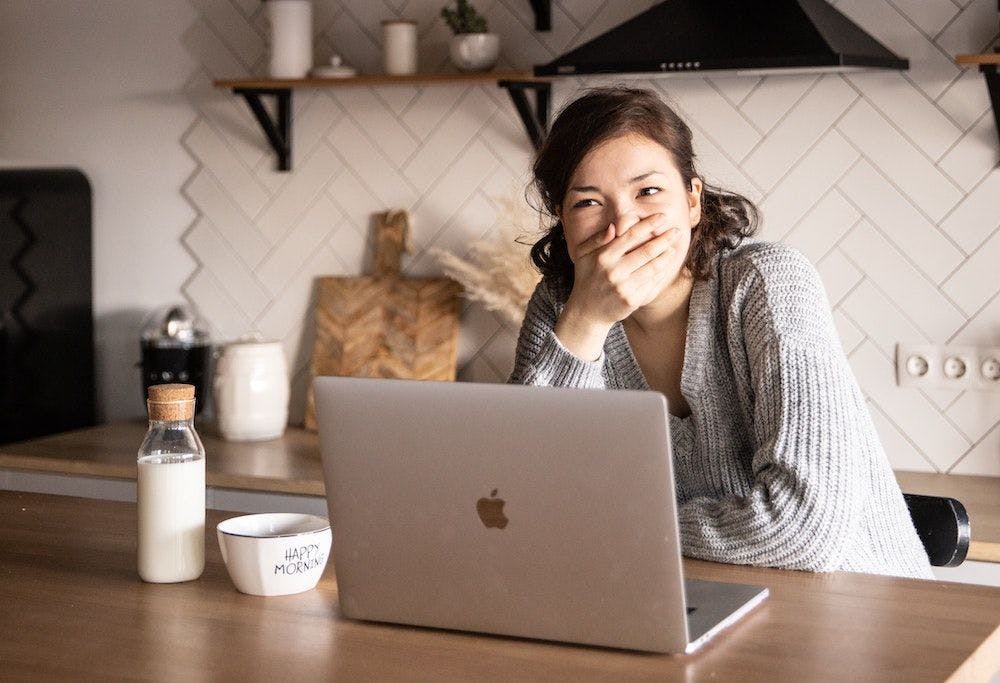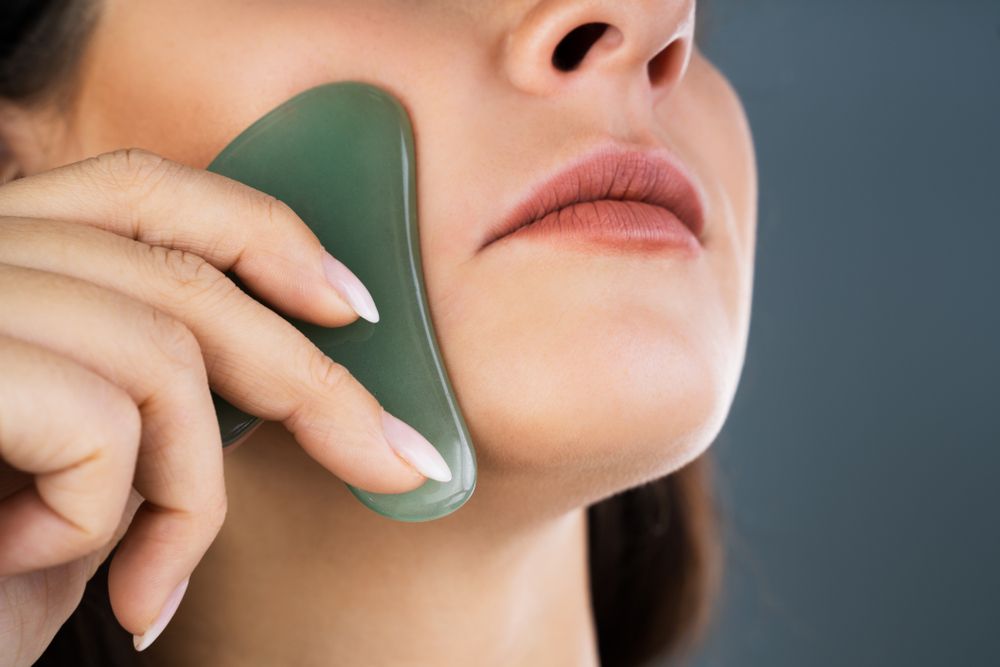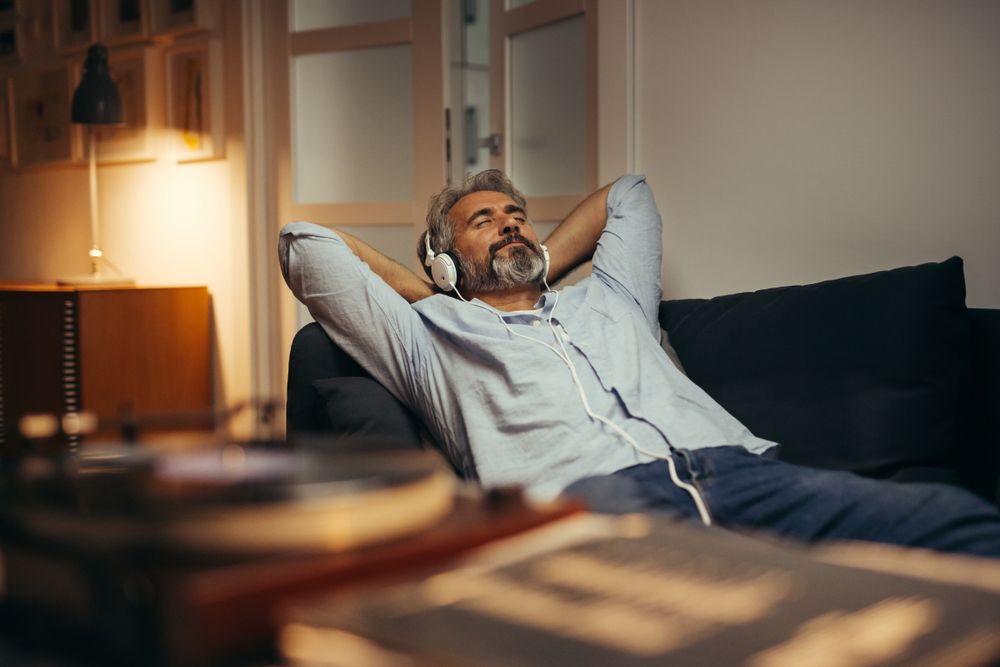
When the usual advice isn’t hitting the spot, it’s time to try a path less trodden to reach a calmer destination
A quiet mind, a soft body and a settled spirit. This is the holy grail when it comes to relaxation. Finding this can be tough at the best of times, but it’s safe to say when a pandemic got thrown into the mix, it became even harder.
There are certain tried and tested methods to help us relax, from deep breathing and yoga to walks in nature and connecting with loved ones. For many, these are clear steps to calm that do the trick every time. But what can we do if the traditional routes to relaxation aren’t working for us?
We’re all gloriously unique, and many of us are going through emotions we’ve never encountered before. Sometimes the thing that everyone raves about just isn’t right for us anymore. When this happens, seeking out a different approach can help. Here are some lesser known tips to relax that you can experiment with.
Dance it out
Helping you get out of your head and into your body, any sort of movement can be a great stress-reliever. Listening to music you love, and moving in a totally free way, can boost your mood and inject a bit of fun into your day.
Try it: Set a timer for five minutes, play your favourite songs, and let go! Dance in your kitchen, with the kids, or at your local park (wherever you feel comfortable), and see how you feel after.
Give yourself a squeeze
Getting a massage is the ultimate relaxation tool, but when you can’t get to the spa, try it yourself at home. Helping to ease tension and offering some dedicated ‘me time’, self-massage can help you relax in both body and mind.
Try it: Bring your hands together behind your neck and, with the bottom of your palms, gently apply pressure to each side of your spinal cord.

Use pressure to release some pressure
Acupressure is often thought of as acupuncture without the needles. Applying pressure to acupoints is believed to help unblock energy, while releasing muscle tension and increasing blood flow.
Try it: To ease anxiety and tension headaches, find the Hegu point in the webbed area between your thumb and index finger. Move your fingers down so you’re between the thumb and index finger. Apply firm and circular pressure for five minutes on each hand.
Laugh
Laughter has a variety of health benefits, including reducing stress and easing muscle tension. While it may not feel so easy to chuckle when you’re having a tough time, prioritising some levity can go a long way.
Try it: Make a list of your favourite funny films, TV shows, or YouTube videos, and keep it to hand for the next time you need to have a good laugh.
Cry
In contrast to the above, sometimes the only thing that helps is to let it all out. When we’re stressed and cry, we actually release stress hormones and therefore reduce the amount in our system.
Try it: Try to get into the habit of letting your feelings come to the surface, so you can feel and process them. Reflective practices such as journaling and meditation can help this.
Get sorting
‘Tidy home, tidy mind’ is a cliché for a reason. When we’re feeling mentally cluttered with stress and overwhelm, it can help to clear away physical clutter. The mindful act of organising and sorting through things can also be meditative.
Try it: Pick an area of the house to sort through, and get to it! We love doing this with our wardrobes and kitchen cupboards in particular, as a place you’ll feel the benefit of being organised each day. Put on some music, and let yourself get fully immersed in the task.
Try sound therapy
Music can have a profound impact on our mood, and certain types of music can often be a shortcut to calm. To take things a step further, try listening to music with low-frequency sound waves and binaural beats. This can slow our brain waves, and induce a feeling of calm.
Try it: Head to YouTube or Spotify and search for low-frequency music and/or binaural beats.

Walk barefoot
Getting out into nature, and letting your bare feet walk the earth, can feel incredibly freeing, and research says it could reduce stress, too. Studies are limited, but the negative charge from the earth’s surface is believed to act as an antioxidant, and could improve sleep, reduce stress, and even ease pain.
Try it: The next time you go for a walk and you’re near a green space, kick off your shoes and feel the dirt between your toes. Focus on the sensations, and being connected to the ground beneath you.
Give self-hypnosis a go
Self-hypnosis is a bit like taking meditation, and infusing it with an intention to change. Tapping into the power of your subconscious, self-hypnosis is ideal if you’re looking to change habits that will make relaxing easier.
Try it: Get yourself into a comfortable position, and focus on relaxing each muscle group one by one. Create suggestions for yourself to encourage a change in habits, for example: “I will switch off from work when work is done.” Visualise this happening in great detail, and note how it feels. Repeat the process regularly.
Try Reiki
Reiki is an energy healing system that originated in Japan. Attuning themselves to universal life energy, Reiki practitioners can then use their hands to adjust this energy in others. Encouraging you to lie down, relax, and connect with something outside of yourself, many people find Reiki sessions incredibly soothing.
Try it: Search for a Reiki practitioner and, if in-person sessions aren’t possible, enquire about distant healing.
Slip into something more (or less) comfortable
Wearing comfortable and tactile clothes can help you feel freer in your body, and more relaxed. A cosy texture can also stimulate your sense of touch, which can help ground you. In contrast to this, some people find constricting ‘athleisure’ soothing. With compression garments stimulating ‘deep touch pressure’, similar to weighted blankets.
Try it: Experiment with different types and textures of clothes, and see what feels best for you.
Hopefully there’ll be something on this list you haven’t tried before, so get experimenting, see what works for you, and expand your relaxation repertoire.
To connect with a therapist who can help you explore new forms of relaxation such as Reiki or massage, visit therapy-directory.org.uk

